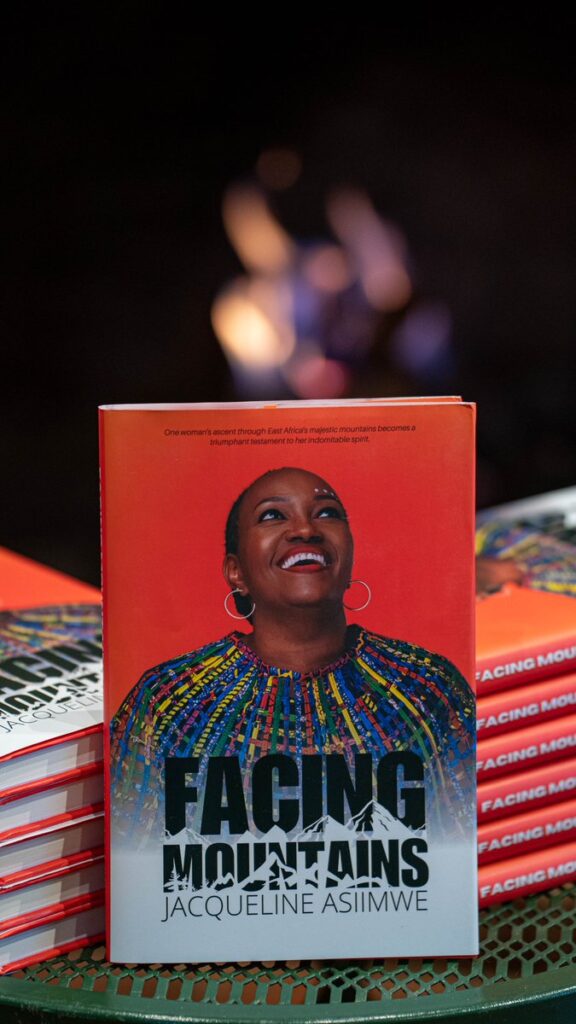By Merinah Mbabazi
Facing Mountains is a book by Jacqueline Asiimwe, a human rights lawyer and philanthropy advisor. It delves into her journey as she climbs some of the mountains of East Africa that include Mountains Elgon, Rwenzori, Kilimanjaro, Muhabura and Longonot. The memoir begins with a description of Mount Kilimanjaro, the highest mountain in Africa and the third mountain the author climbed. Asiimwe shares how relieved she was upon reaching the peak, releasing all the emotional baggage she had been carrying. According to her, climbing Kilimanjaro not only exposed her lack of preparation but also other areas of her life in which she felt inadequate.
The mountains the advocate hiked are metaphorical as well as they are literal. With every peak she climbed, came happiness that served as medicine to the depression she felt before. Team work truly made the dream work as Asiimwe worked with different crews to prepare for and explore the various summits. She does not shy away from writing about the physical and mental toll this took on the crew members. The lawyer also shares that as her strength and fitness improved, so did her focus and resilience in her professional work.
The author seamlessly weaves stories from her early life throughout the different chapters. Suffering, as a theme, is highlighted in various ways including when at one time her parents ran out of money during their stay in Canada. Fortunately, they were blessed by the kindness and generosity of their church family. On a personal level she struggled to adjust to the Uganda education system when her family returned in 1980. In both Canada and Georgetown University in Washington DC where she pursued her postgraduate studies, Asiimwe faced racism. Despite these and other challenges, she excelled in her A Levels, and proceeded to become a lawyer, an advocate and Chief Executive Officer (CEO) of CivSource Africa a philanthropy advisory service she founded in 2017.
One of the lessons highlighted is to celebrate people who make it possible for us to achieve our goals. Asiimwe expresses gratitude for the mountain guides, drivers, and cleaners, among others who have helped her not only during her mountaineering but also in her professional life.
Appearance versus reality is also portrayed in the memoir. While on surface level everything seemed alright, deep down Asiimwe felt dejected about her life. She reveals her failed suicide attempt through binge eating that led to a reset in her life. The advocate explains that doing work that breaks glass walls can become isolating, therefore it is important to surround yourself with like-minded individuals. You also need to build strong mental reserves as they impact your physical actions.
Faith and resilience has moved multiple mountains in Asiimwe’s life. This is a result of her Christian upbringing and personal relationship with God. In the book she reveals that her advocacy journey began with the verse Isaiah 1:17, “Learn to do right; seek justice. Defend the oppressed. Take up the case of the fatherless; plead the case of the widow.”
Imagery as a technique is employed through the description of the different mountains and their trails. The various features like the rugged terrains, thick vegetation, beautiful flora and fauna and glaciated peaks paint a vivid picture of the climbing experience.
Facing Mountains is an informative, educative and heart-warming piece. It is also meticulously written and put together, right from the book cover, to the titles of the different sections. The dedication written in an inverted triangle alignment similar to that of a mountain does not go unnoticed either.
The only downside is that the average reader would need to read it with a dictionary to find out the meaning of some words.
As one reads the book, they should ask themselves these questions: What is my mountain? How can I face it? Whom will I face it with?


